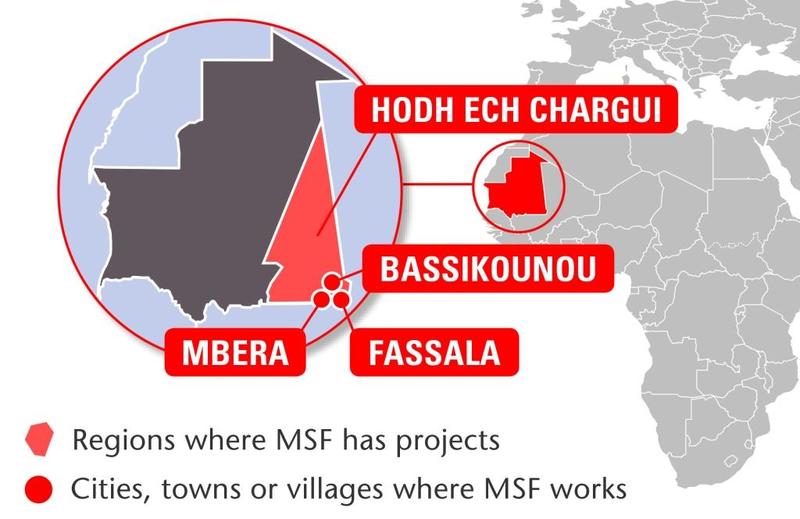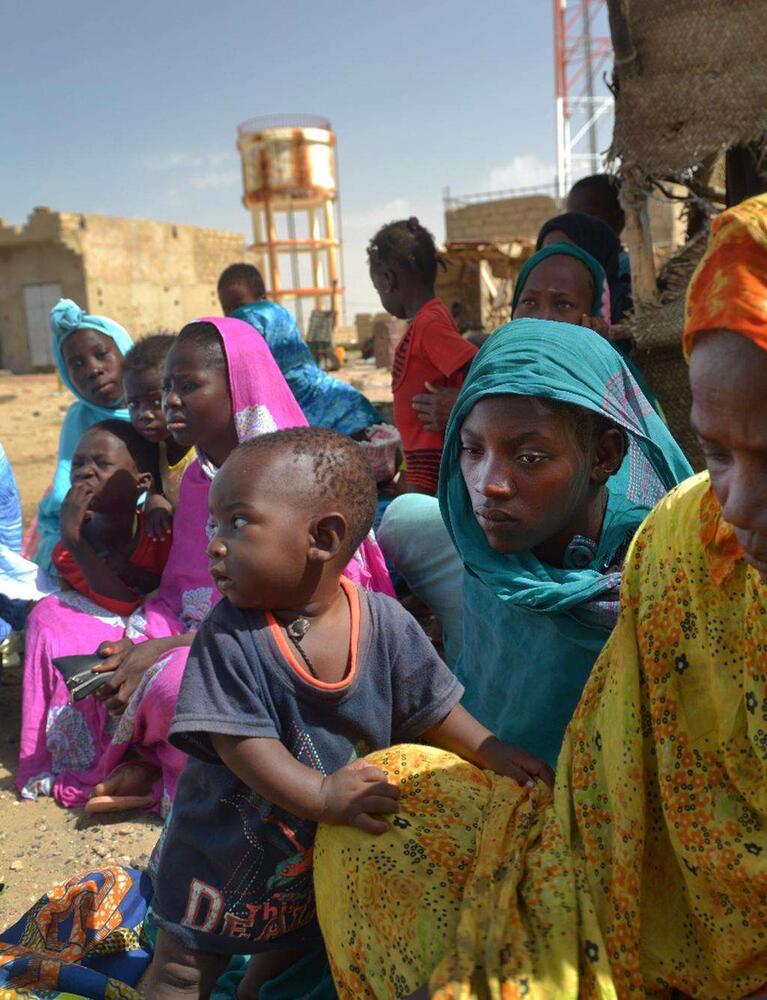Mauritania is largely a desert country in West Africa’s Sahel region, and is home to over 3.5 million people.

It is a bridge between North Africa’s Arab Maghreb and the western sub-Sahara. It’s also one of Africa’s newest oil producers.
Médecins Sans Frontières/Doctors Without Borders (MSF) first began working in Mauritania in 1994. Today, all of MSFs’ work is carried out in the south east of the country along Mauritania’s border with Mali.
Here, tens of thousands of refugees have fled insecurity in northern Mali for shelter in Mbera refugee camp.
[[Country-Facts]]
patient story
Massaya and Taghry, mother and father of quadruplets born in Bassikounou, from Mali.
“We left the village out of fear for our life; we were scared for our life. We were worried about not having food. Half of our village fled at the same time”
MSF’s work in Mauritania: 2015
There are approximately 50,000 Malian refugees living in Mauritania’s Mbera refugee camp. They are almost entirely dependent on international aid for survival, and many don’t have adequate food or shelter.
The political and security crisis in Mali in 2013 forced thousands of Malians to flee across the border to Mauritania.
Despite the initiation of a peace process in 2014, northern Mali remained so insecure that government services were and are largely absent from the region.
Armed groups splintered while violent attacks and banditry dissuaded refugees from returning home.
MSF provides basic and emergency healthcare, and gynaecological and obstetric services for the refugees in Mbera camp and for the host communities in nearby Bassikounou and Fassala.
By supporting the government clinics and hospitals, we have ensured that everyone in the economically marginalised area has access to free medical care for the first time.
In 2015, the majority of the life-saving surgical procedures were caesarean sections and visceral and orthopaedic surgery.
Find out more in our 2015 International Activity Report



